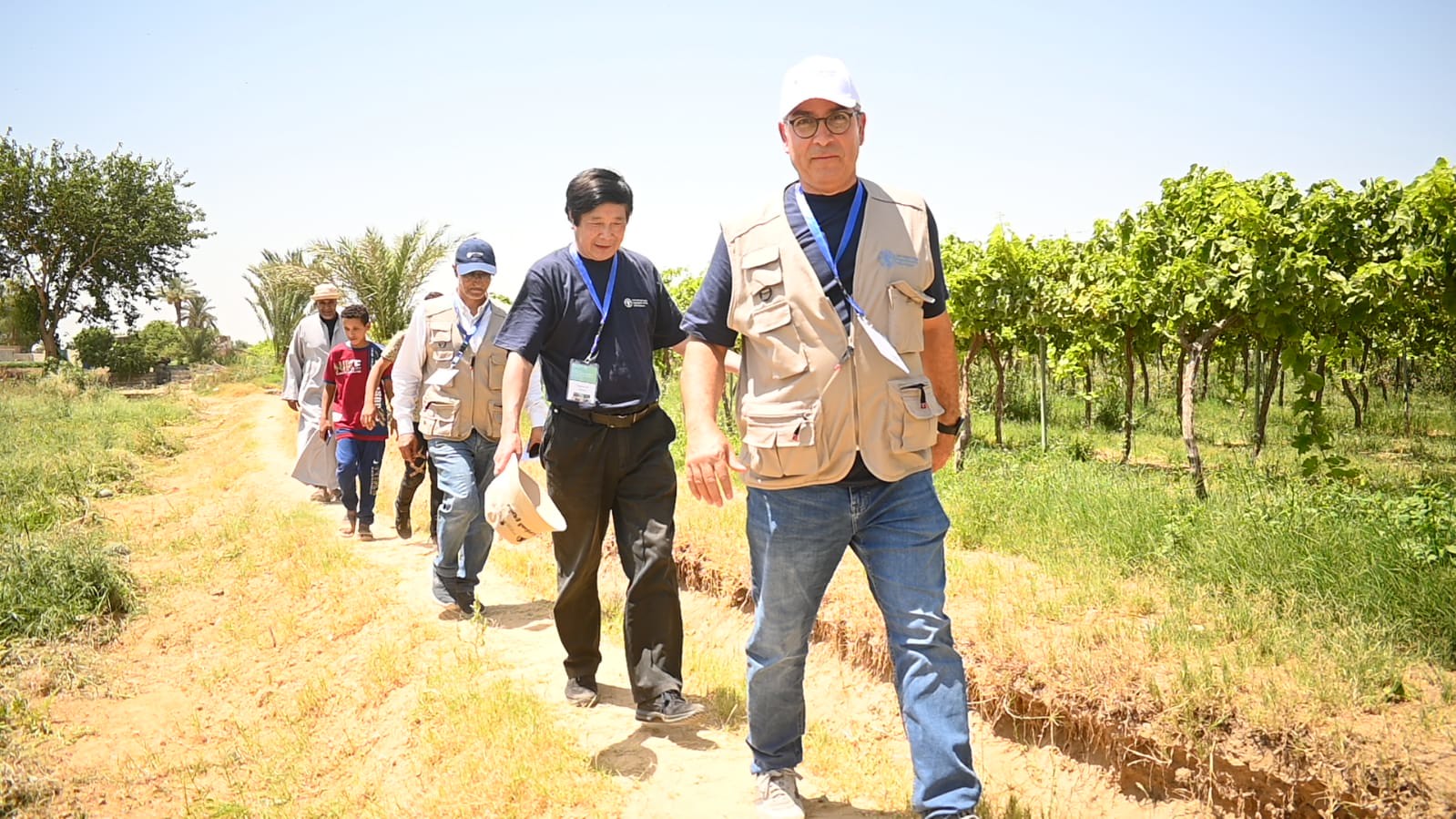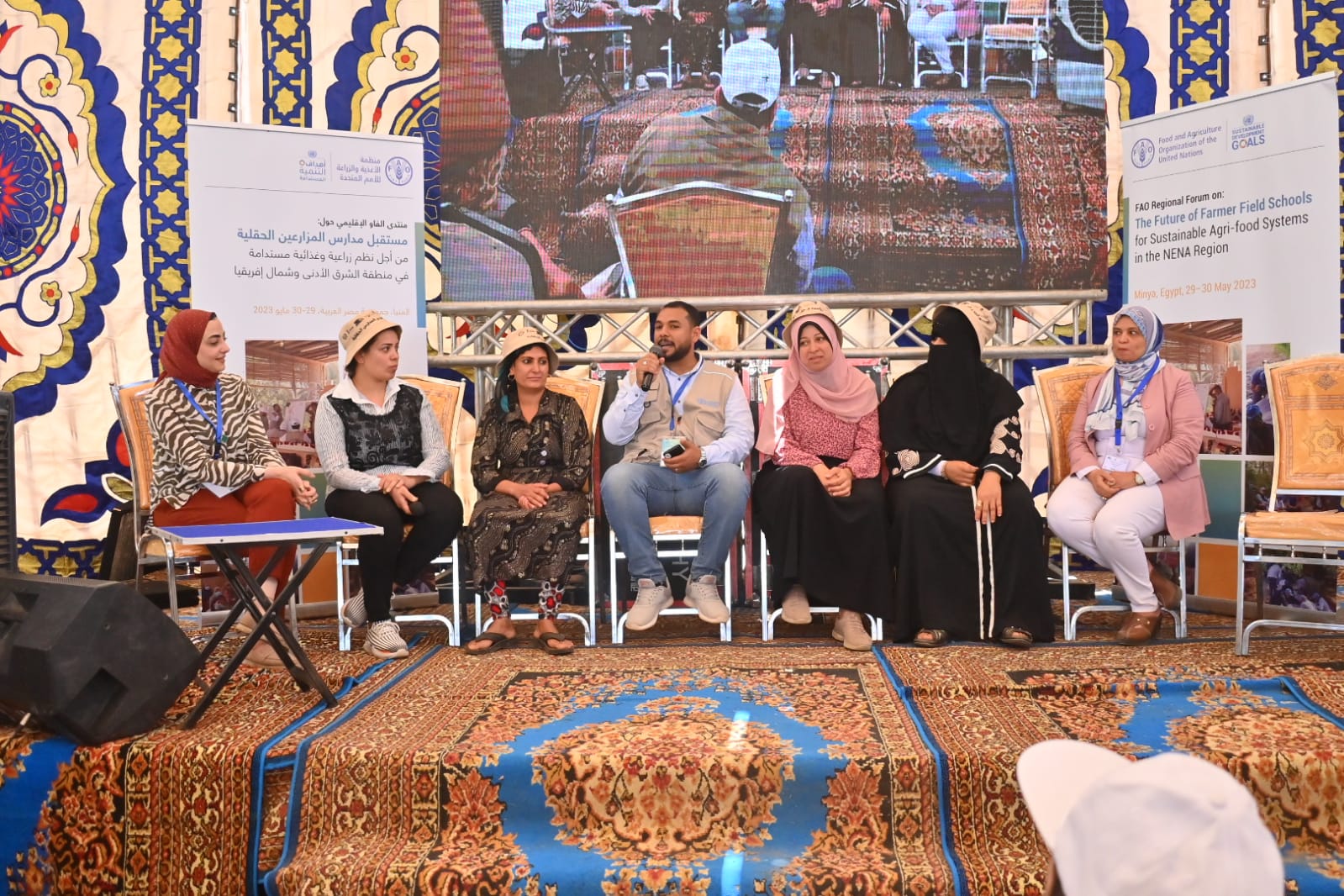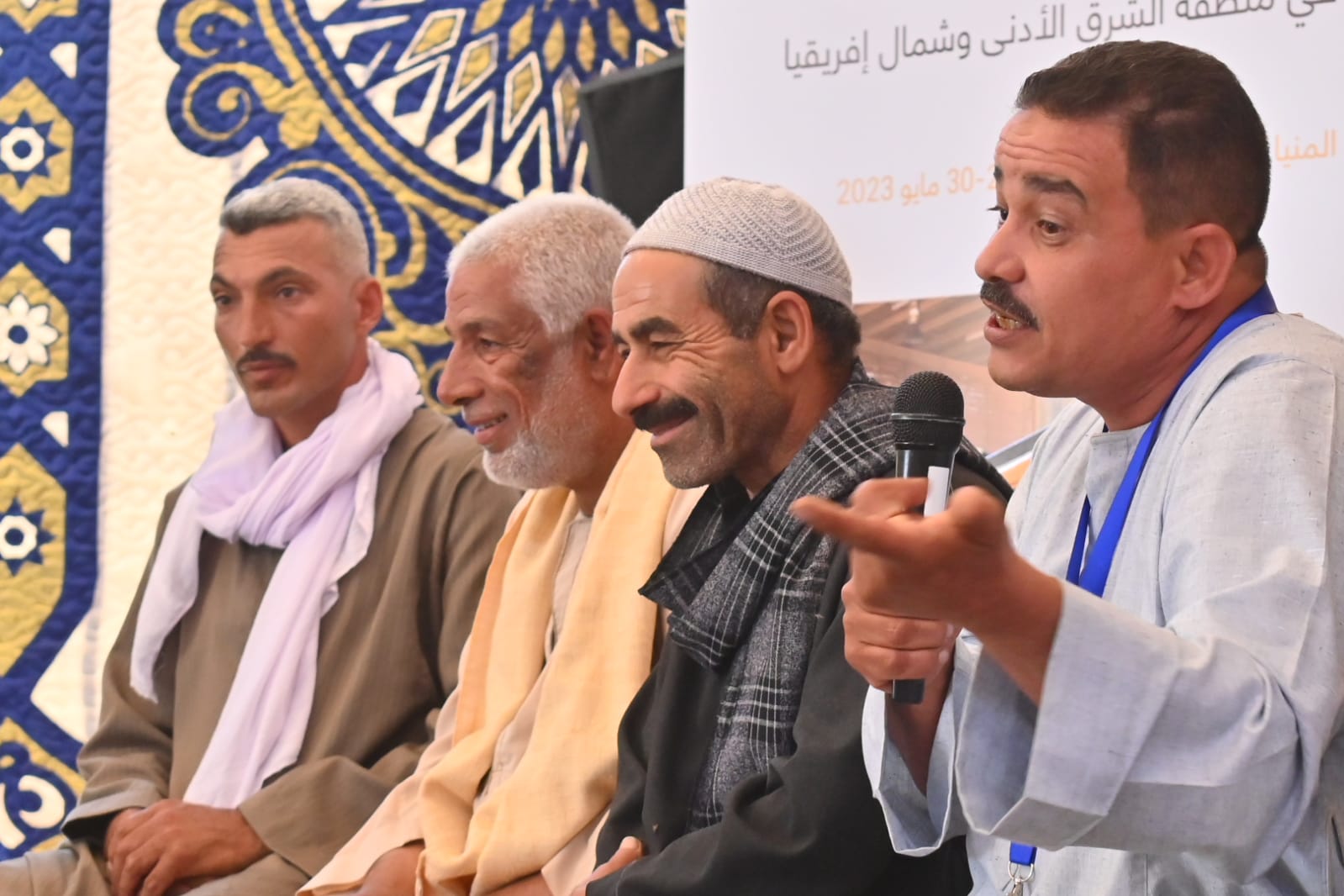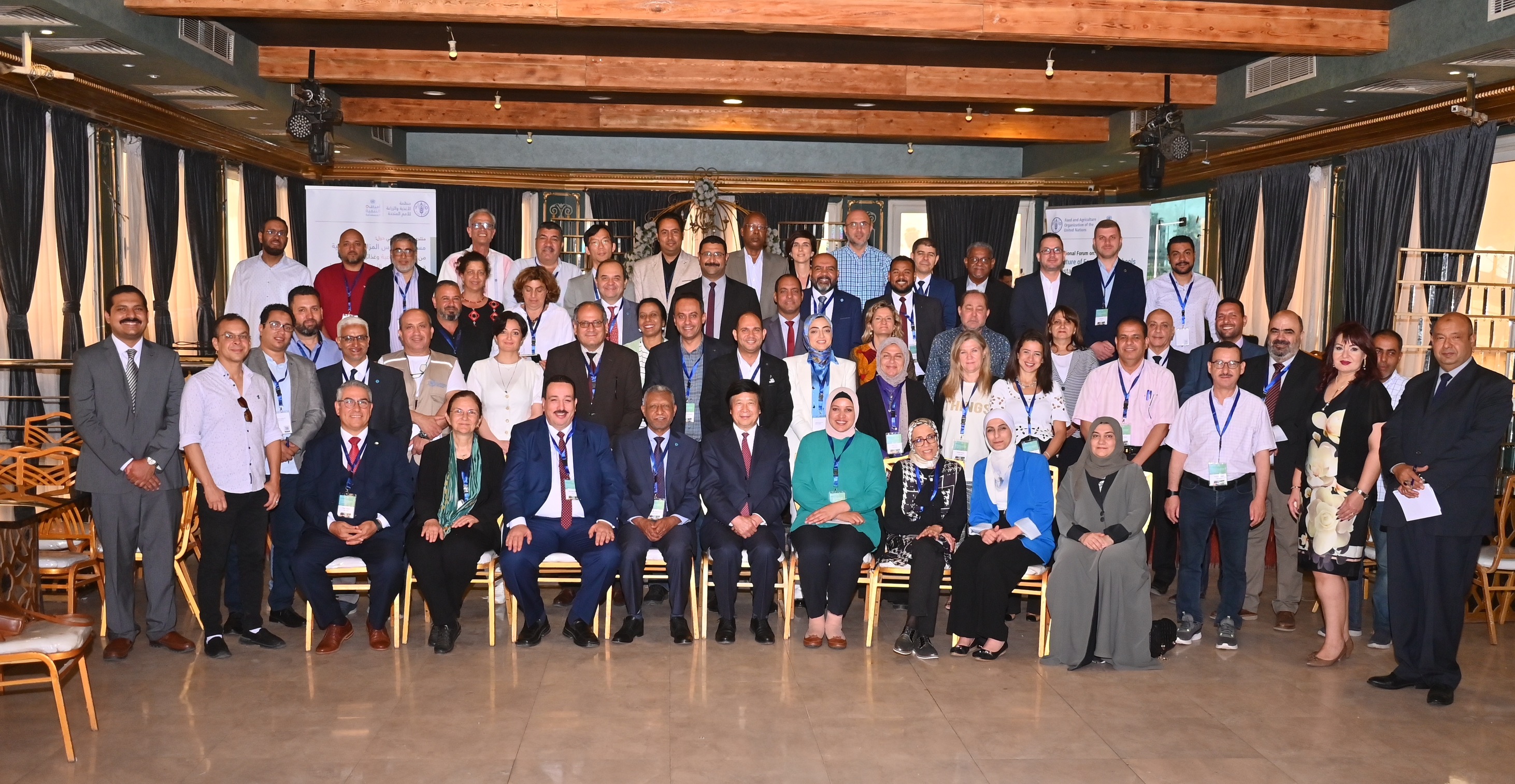The First Regional Forum on the future of Farmer Field Schools for Sustainable Agrifood Sytems hosted in Egypt

Minya, Egypt - May 31, 2023
The First Regional Forum on the Future of Farmer Field Schools (FFS) for Sustainable Agrifood Systems was held for two days in Minya, Egypt. The forum was attended by experts from the Regional Office for the Near East and North Africa (NENA) of the Food and Agriculture Organization of the United Nations (FAO) and government officials from 12 Arab countries.
The forum aimed to understand the role of FFS and their contributions to the adoption of sustainable agrifood systems. The forum also provided an opportunity to exchange experiences and innovations between NENA countries, provide technical guidance to enhance the capabilities of FFS, identify challenges and priorities in their implementation with the aim of adopting transformation and comprehensive and sustainable agrifood systems.

The field trip of the first day reflected the real success of FFS, talking to the farmers and listing great benefit they obtain in knowledge sharing, reduction of the use of fertilizers, pesticide and water, but increase of the maize production by 20-35%. This precisely demonstrated in the field the reality of the concept of “Producing more with Less”. Most importantly, FFS improved the confidence and the relationship between farmers and strengthened the tissue of the society, rather than the technical information shares.
The second day of experience sharing between countries and the presentation of the new version of FFS in NENA by the representatives of the three generations of FFS facilitators indicated that the future of FFS is very promising.
The welcoming speech of Mr. Abdelhakim El-Waer, Assistant Director-General of the Food and Agriculture Organization and Regional Representative for the Near East and North Africa, which was delivered on his behalf by Mr. Nasr El-Din Haj El-Amin, FAO Representative in Egypt, emphasized that farmers are at the center of any transformation process. Therefore, they must be provided with knowledge and capabilities that allow them to play an effective role and improve their participation in decision-making to accelerate the transformation of agricultural and food systems in the region. FFS is a great tool in rural development to empower farmers as stakeholders rather than beneficiaries in a sustainable, participatory, and experiential way.
 |  |
Between 2015 and 2022, there were about 52 projects out of a total of 192 projects implemented in 13 countries in the region, which included the implementation of FFS to focus on key priorities such as enhancing crop production and protection, integrated management of transboundary pests, poultry, and livestock, water and irrigation management, and the empowerment of rural women.
Jingyuan Xia, Director of Plant Production and Protection Division (NSP), mentioned that “we are facing great challenges for food and agriculture, as by 2050 the population will reach 10 billion, and the agricultural production must increase by 50 percent and 80 percent of this increase is from plant sources, which makes Farmer Field Schools a necessary tool for transforming agrifood systems to be more comprehensive, flexible and sustainable.“
In conclusion, this forum provided an opportunity to better understand the role of FFS in sustainable agrifood systems through exchanging experiences between NENA countries. It also identified challenges and priorities in their implementation with the aim of adopting transformational comprehensive and sustainable agrifood systems.

All photos from: FAO Flickr
